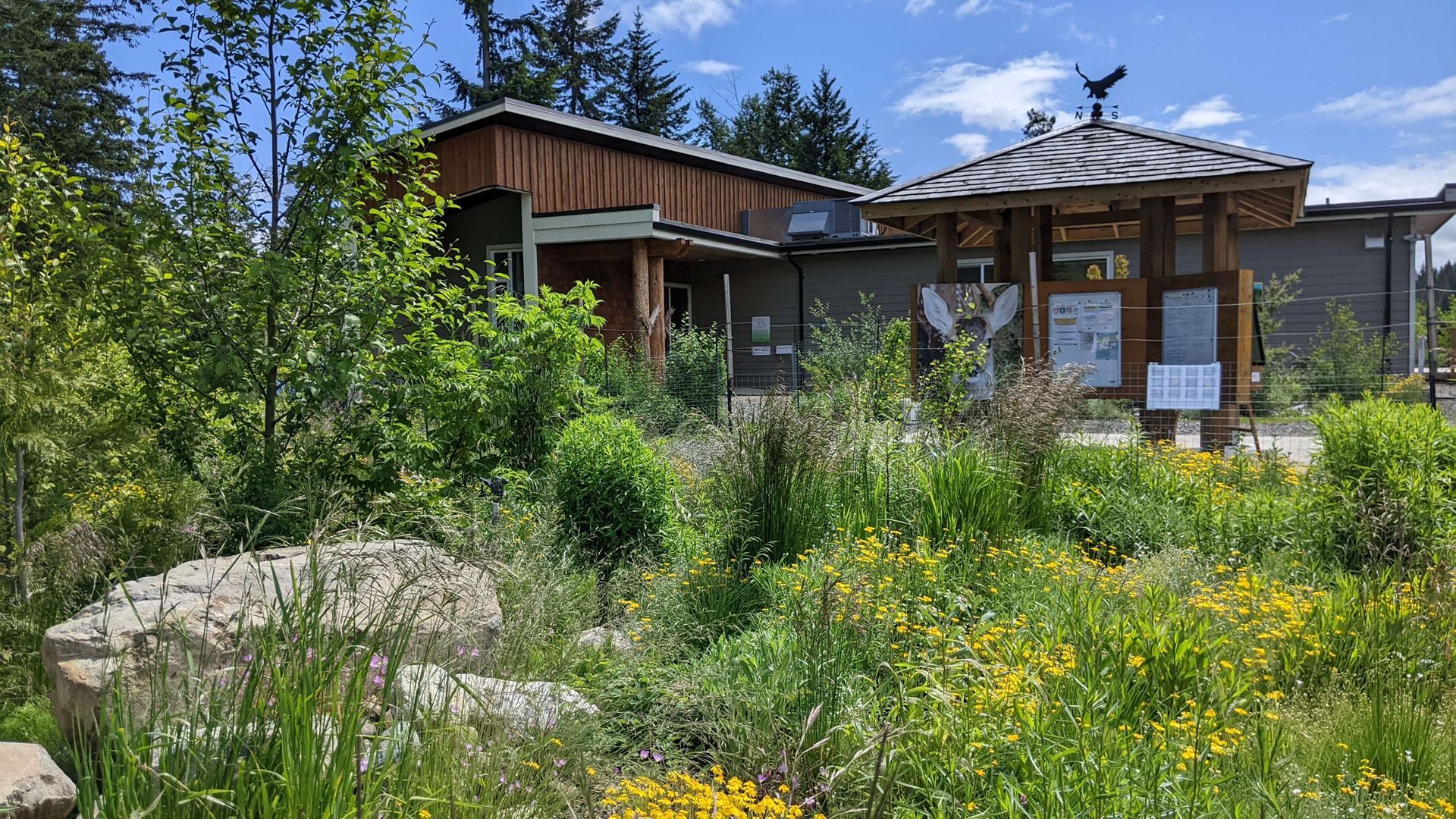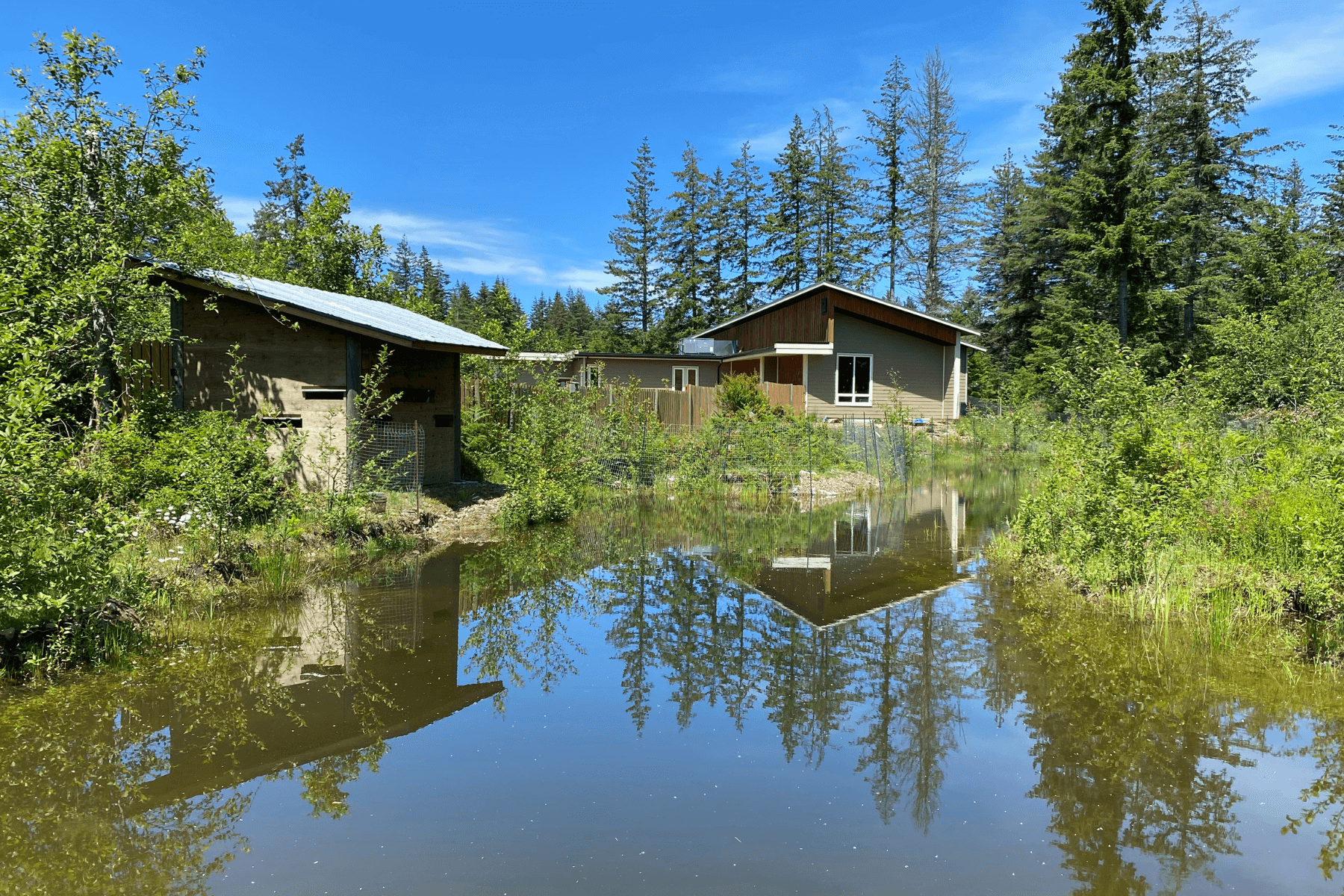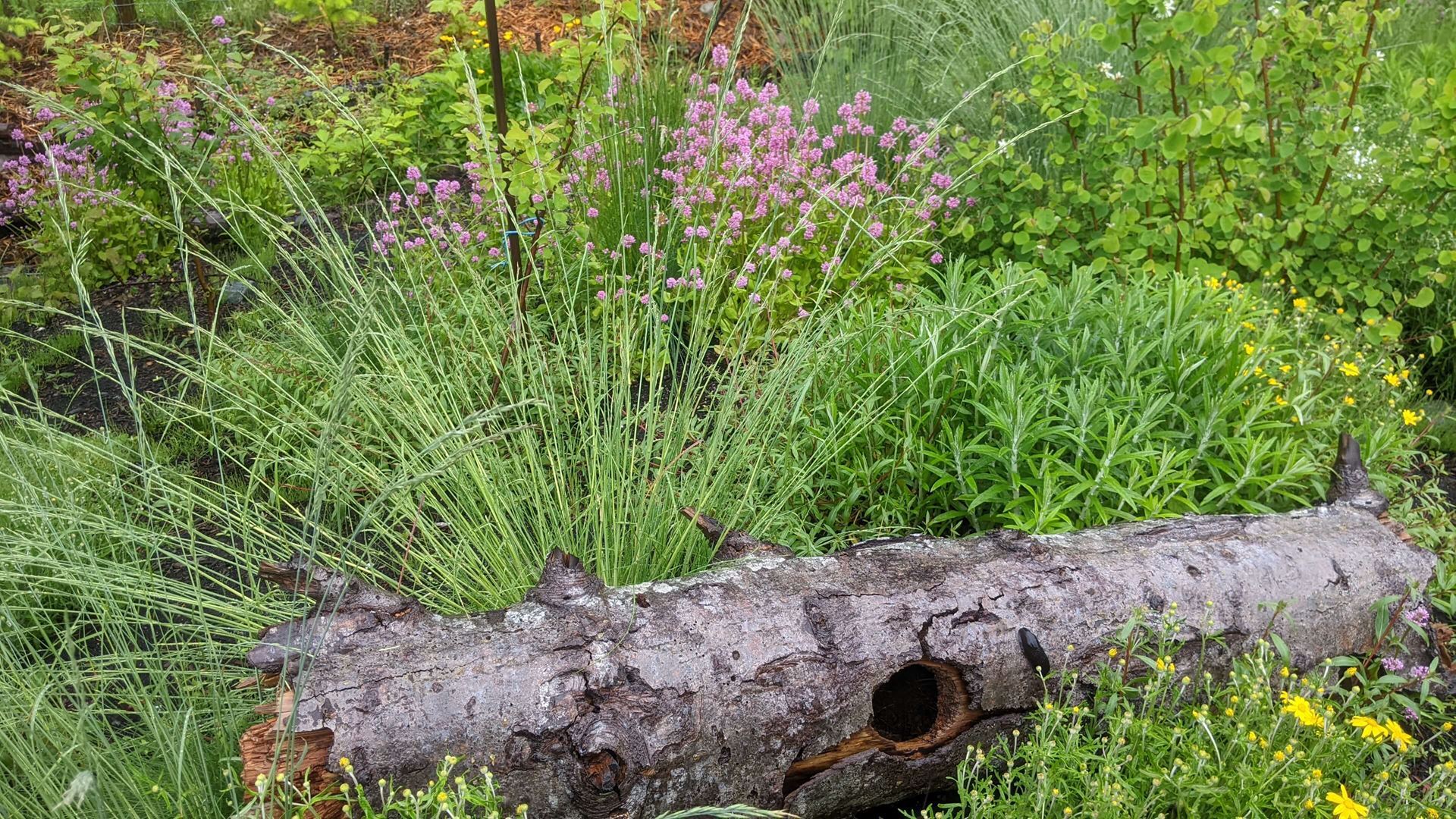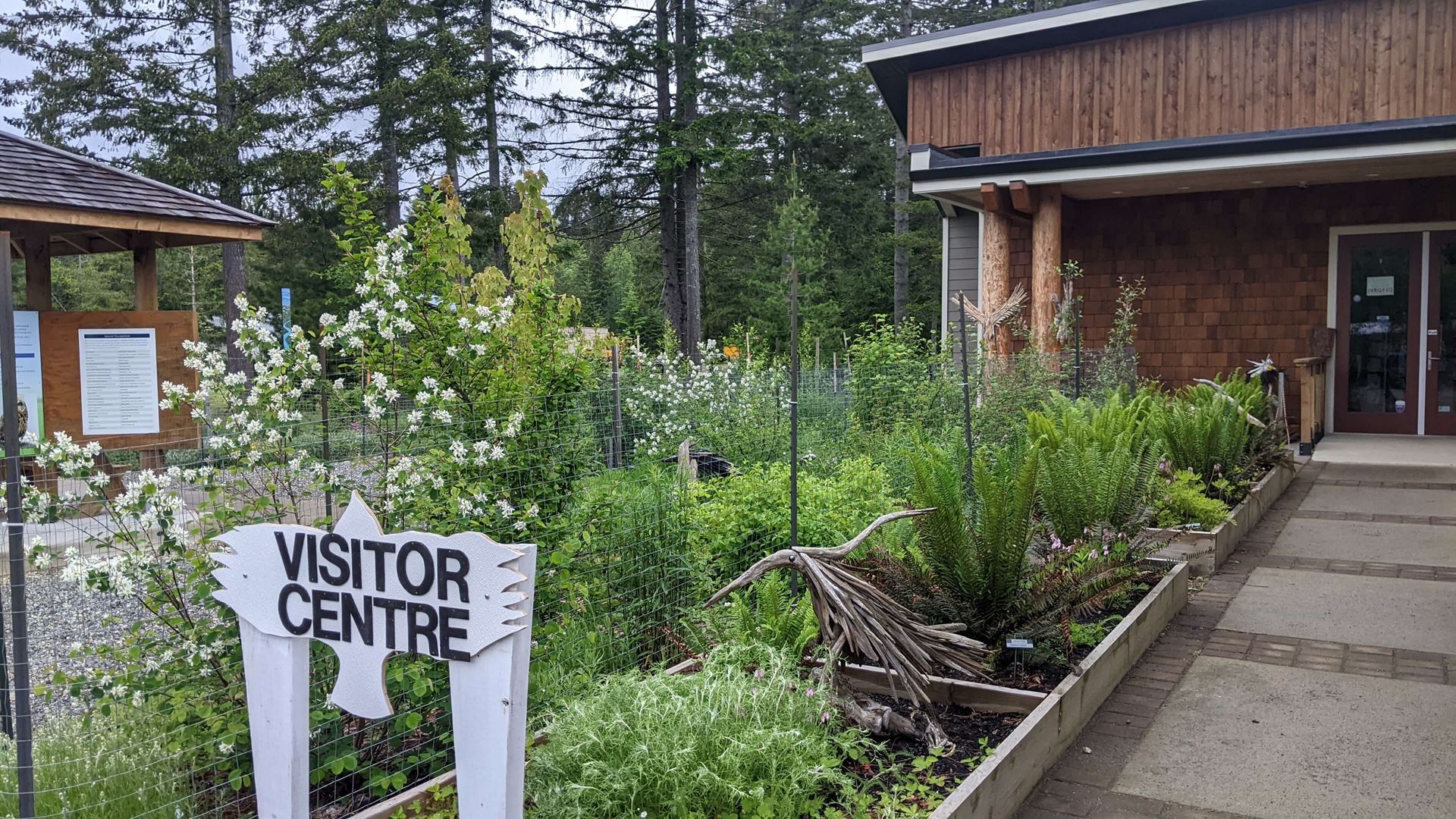2022 Greener Greenspace Profile
MARS Wildlife Rescue Centre
Located in Melville, Vancouver Island, the MARS Wildlife Rescue Centre is a wildlife hospital and visitor centre dedicated to wildlife protection and preservation and public education.
Design and Process MARS Wildlife Rescue Centre is a wildlife hospital and visitor centre with a mission to rehabilitate wildlife, restore habitat and educate the public. The eleven-acre site was once an outdoor movie theatre and an informal garbage dump. Since 2015, dedicated volunteers and staff have been restoring the site through thoughtful planting of native species, soil rehabilitation and land restoration. To create habitat for waterfowl and other species, they dug a pond that is fed by re-engineered swales and with water from the roof of the Visitor Centre building. Beginning in 2020, the Centre began a strategic restoration project that included the creation of several meadow and riparian beds planted with native species of shrubs, grasses and forbs suitable to the eastern Vancouver Island Garry Oak ecosystems. The grounds of the Centre are tended using regenerative land care practices. To enhance habitat and mimic natural forest processes, leaves and branches that fall remain in the forest and shrub beds. In the fall, the grasses and native forbs are left to seed to provide food and shelter for birds and other wildlife over the winter. Grasses and perennials in the shrub areas are chopped and dropped in the spring. In the meadows, where some of the native annuals benefit from bare soil for their renewal, the practice is to cut the organic matter to use as mulch in nearby areas. Willow wattles along a swale and in areas around the wetland retain banks that were previously eroding. Rock piles, brush piles, and decaying logs are purposely left on site. To support local wildlife, including insects and birds, the centre added mason bee houses, bat boxes, and nest boxes for swallows and owls. The species spotted living at or visiting the property are documented using iNaturalist and e-Bird. Community Collaboration MARS Wildlife Rescue Centre has a small staff team, a dedicated board, and a core group of keen volunteers, supplemented with others for big work parties. The centre hosts public tours to explore the interrelatedness of wetlands to ecosystem health and the consequences of invasive species and habitat loss on wildlife. In the gardens, plant labels show common and scientific names of trees, shrubs, grasses and flowers, and posters with species in bloom for identification. Attention is drawn to the diversity of pollinators and other invertebrates around the property. Presentations for the public include the need for healthy, native species ecosystems. Future plans for the site include hosting specific presentations on planning, planting, and tending a native species garden in one's own yard, presentations on native bees and collecting seed. In addition, future plans include partnering with K'ómoks First Nation to develop ethnobotany resources and possible tours, and highlighting the work of the Guardian Watchmen in an exhibit and/or presentation. Over a one-year period, MARS welcomed over 3,100 guests on 400 booked tours. Visitors appreciate both the beauty and function of the restored land, and the centre's efforts to care for and rehabilitate wildlife. In 2021, MARS Wildlife Rescue undertook a waste management audit with the guidance of Comox Strathcona Waste Management to seek alternatives to burning and reduce the volume of what was sent to the landfill. As a result, the Centre refined some of its diversion strategies and purchased a large rodent and bear-proof compost tumbler that receives compostable scraps (including meat and fish) from the wildlife hospital. Watch a presentation by volunteers with MARS Wildlife Rescue - part of SOUL's 2023 Webinar Series on Ecological Land Care. | 
Photos c/o MARS Wildlife Rescue |
Greener Greenspaces is a recognition program for sites from across Canada that exemplify greener greenspace stewardship. The aim of the program is to showcase examples of ecologically-focused land care as a means to inspire others and to further the movement across Canada.
See the full list of 2022 recognition recipients here


.jpg)

.JPG)